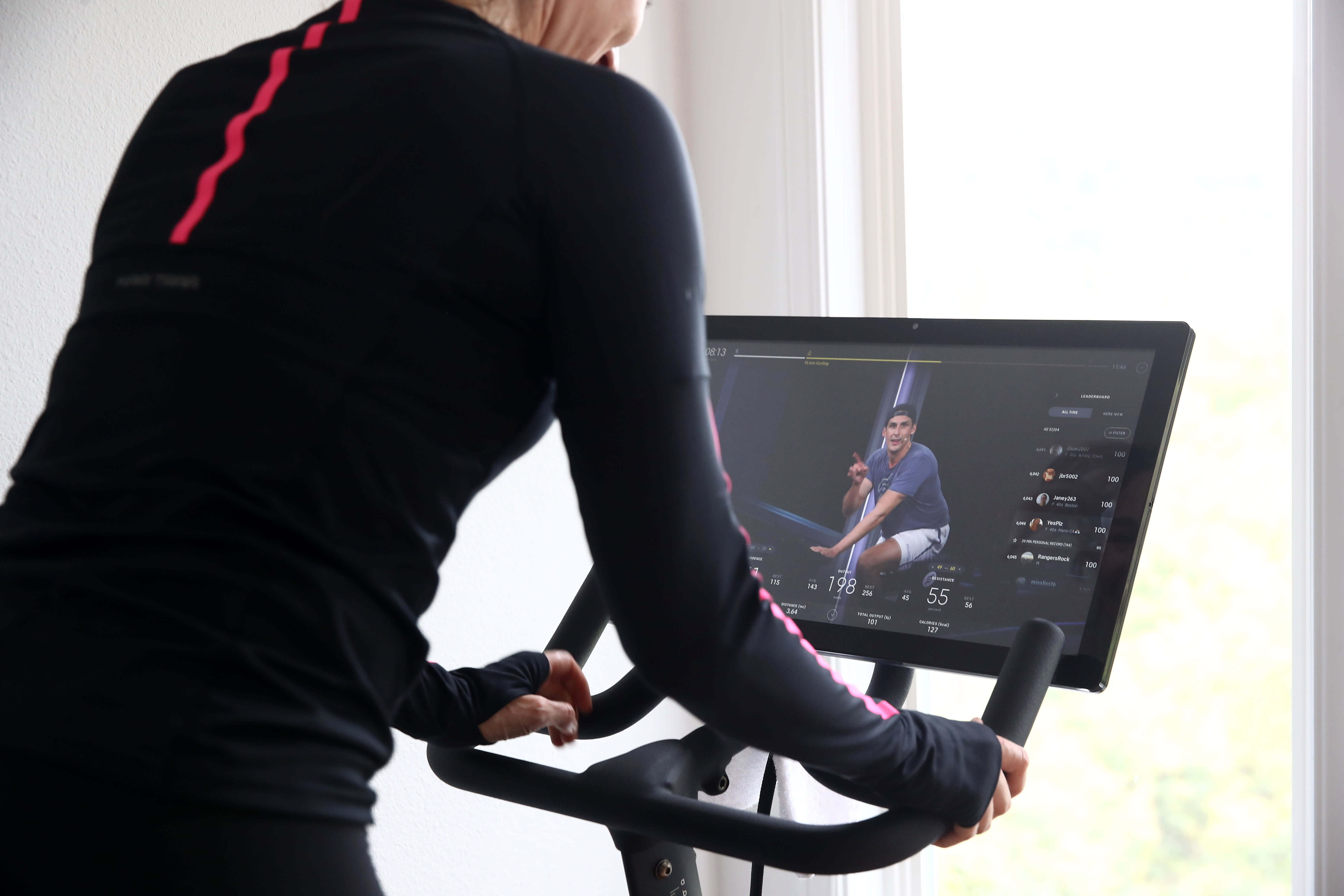Peloton is temporarily halting production of its connected fitness products as consumer demand wanes and the company looks to control costs, according to internal documents obtained by CNBC.
Peloton plans to pause Bike production for two months, from February to March, the documents show. It already halted production of its more expensive Bike+ in December and will do so until June. It won’t manufacture its Tread treadmill machine for six weeks, beginning next month. And it doesn’t anticipate producing any Tread+ machines in fiscal 2022, according to the documents. Peloton had previously halted Tread+ production after a safety recall last year.
The company said in a confidential presentation dated Jan. 10 that demand for its connected fitness equipment has faced a “significant reduction” around the world due to shoppers’ price sensitivity and amplified competitor activity.
Peloton has essentially guessed wrong about how many people would be buying its products, after so much demand was pulled forward during the coronavirus pandemic. It’s now left with thousands of cycles and treadmills sitting in warehouses or on cargo ships, and it needs to reset its inventory levels.
The planned production halt comes as close to $40 billion has been shaved off of Peloton’s market cap over the past year. Its market value hit a high of nearly $50 billion last January. But on Tuesday its shares tumbled to a 52-week low of $29.11 — nearly falling below the $29 mark, where it priced its initial public offering in September 2019.
Peloton’s shares fell more than 20% on the news, bringing the stock’s market value to $8.3 billion and hitting a 52-week low of $23.25 before trading was halted.
Loading chart…
The company’s presentation shows Peloton had initially set expectations on Oct. 31 for demand and deliveries in its fiscal third quarter and fourth quarter that ended up being far too high. It reevaluated those forecasts on Dec. 14, according to the presentation, and Peloton’s expectations dropped significantly for its Bike, Bike+ and Tread.
However, Peloton said, the latest forecast doesn’t take into account any impact to demand the company might see when it begins to charge customers an extra $250 in delivery and setup fees for its Bike, and another $350 for its Tread, beginning at the end of this month.
Peloton also said it has seen low email capture rates for the upcoming debut of its $495 strength training product, Peloton Guide, which is codenamed “Project Tiger” in internal documents viewed by CNBC. Email capture rates keep track of the number of people who enter their email addresses on Peloton’s website to receive information on the product. The company said this is a signal of “a more challenging post-Covid demand environment.”
The official launch of Guide in the U.S. was pushed from last October to next month and now could come as late as April, the presentation dated earlier this month said. The company also said it initially planned to charge $595 for the bundle that includes one of Peloton’s heart rate arm bands and later dropped the price by $100.
A Peloton spokesperson declined to comment.
The company is scheduled to report its fiscal second-quarter results on Feb. 8 after the market closes.
Too much supply as spending flatlines
A little more than a year ago, Peloton was facing the exact opposite issue. It had too much demand and not nearly enough supply. In December 2020, it announced a $420 million acquisition of the exercise equipment manufacturer Precor, giving it more than 625,000 square feet of production space. That deal closed early last year.
Then, last May, Peloton said it would be spending another $400 million to build its first factory in the United States to speed up production of its cycles and treadmills. That facility in Ohio isn’t expected to be up and running until 2023.
In recent months, though, gyms have reopened and consumers don’t appear to be throwing as much money into at-home fitness equipment. At the end of its latest quarter, Peloton counted 2.49 million connected fitness subscribers. It only added about 161,000 net new members in the period ended Sept. 30, its lowest growth in two years.
The reversal is seen in its stock price. Pelton shares rallied more than 440% in 2020, but dropped 76% in 2021.
In a separate internal Peloton presentation dated October 2021, which was obtained by CNBC, Peloton said that it was expecting overall fitness spending would continue to grow year over year, but instead overall spending was flat following the summer months.
Analysts in recent weeks have been trimming their expectations for Peloton’s second quarter as well as their price targets for the stock, projecting that Peloton had a weak holiday.
Peloton’s market share could be falling
One bright spot the presentation noted was that Peloton’s share of the total connected fitness market had been increasing.
But a report from research firm M Science shows that Peloton’s overall market share might be on the decline. In November, Peloton’s share of all connected fitness products priced at a minimum of $1,400 was tracking slightly below levels observed in 2019 and 2020, M Science said. That’s despite the lift Peloton saw on key holiday shopping days including Black Friday and Cyber Monday, it said.
M Science pegs Peloton’s share of the market for products priced at more than $1,400 at a little more than 65%, making it the leading player. Other at-home fitness products that M Science tracks include Echelon, Hydrow, Lululemon‘s Mirror, NordicTrack and Tonal.
M Science also said that it didn’t yet see “any evidence of another wave of at-home fitness demand as a result of recent Covid-19 developments.”
CNBC reported on Tuesday that Peloton is working with consulting firm McKinsey & Co. to look for ways to slash costs, which could entail job cuts and store closures. A person familiar with the matter said Peloton has already started layoffs in its sales division. The person requested anonymity because they weren’t authorized to speak for the company.
